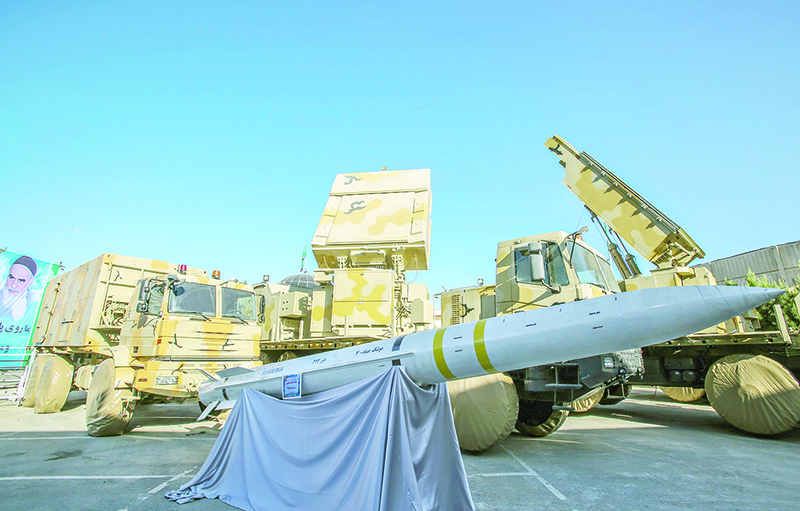
TEHRAN: Iran
unveiled its new home-grown air defense system yesterday at a time of increased
tensions with the United States. Iranian officials have previously called
Bavar-373 the Islamic republic's first domestically produced long-range missile
defense system. Tehran began making Bavar-which means "believe"-after
the purchase of Russia's S-300 system was suspended in 2010 due to
international sanctions.
President Hassan
Rouhani attended the unveiling ceremony for the mobile surface-to-air system
and ordered it to be added to Iran's missile defense network, state news agency
IRNA reported. "The long-range Bavar-373 missile system is suited to
Iran's geography with a range of more than 200 kilometres (124 miles) ... and
competes with Russian and American systems such as S-300 and Patriot,"
IRNA said. The system is "better than S-300 and close to S-400",
Rouhani said in televised remarks after the ceremony, held on Iran's "national
defence industry day".
Pictures released
by his office showed the system mounted on the back of military trucks in
Tehran. Iran installed the S-300 system in March 2016 following several years
of delays, after a nuclear agreement reached with world powers the previous
year allowed the lifting of international sanctions. Yesterday's unveiling
takes place against a backdrop of rising tensions with Washington since
President Donald Trump last year withdrew the United States from the nuclear
deal and reimposed sanctions. Iran shot down a US Global Hawk drone with a
surface-to-air missile in June for allegedly violating its airspace, which the
United States denies.
Iran is prepared
to work on French proposals to salvage the international nuclear deal that
Tehran signed with world powers in 2015 but it will not tolerate US
interference in the Gulf, its foreign minister said yesterday. At a time of
heightened friction between Tehran and Washington, Iran also displayed what it
described as a domestically built long-range, surface-to-air missile air
defense system.
The United State
abandoned the international nuclear deal in May last year and stepped up
sanctions on the Islamic Republic. In an effort to prop up the agreement,
French President Emmanuel Macron offered on Wednesday to either soften
sanctions on Iran or provide a compensation mechanism "to enable the
Iranian people to live better" in return for full compliance with the
pact.
Iranian Foreign
Minister Mohammad Javad Zarif, speaking at at the Norwegian Institute of
International Affairs, said he was looking forward to having a serious
conversation with Macron in Paris today. "There are proposals on the
table, both from the French and the Iranian side, and we are going to work on
those proposals tomorrow," he said. Zarif also warned against US efforts
to create a security mission, which so far Britain, Australia and Bahrain have
joined, to guard shipping in the Strait of Hormuz, a vital gateway for global
oil supplies.
"It's clear
that the US' intention..(of having a) naval presence in the Gulf is to counter
Iran.. Don't expect us to remain quiet when somebody comes to our waters and
threatens us," Zarif said. Several international merchant vessels have
been attacked in the Gulf in recent months in incidents that have rocked global
commodity trading. The United States has blamed Iran, which denies the
accusations.
Adding to the
fraught mood, British forces seized an Iranian tanker off Gibraltar in July
then Iranian Revolutionary Guards detained a British vessel in the Gulf. In his
speech in Oslo, Zarif said Iran would not start a war in the Gulf but it would
defend itself. "Will there be a war in the Persian Gulf? I can tell you
that we will not start the war...but we will defend ourselves."- Agencies











